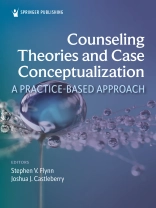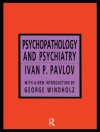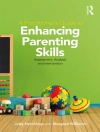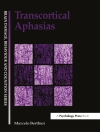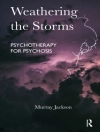One of the aspects of this textbook that I most appreciate is that Dr. Flynn embraces action as a scholar by integrating the most relevant and impactful theoretical practices, tackling developing trends such as telebehavioral health, and challenging us, as readers, to apply complex theoretical constructs from an intersectional, culturally responsive, and social justice paradigm. This is not a reimagining of the traditional counseling theories textbooks from 10 years ago but rather an act of evolution and engagement captured in the immediate assertion of social justice–oriented theories.
Nicole R. Hill
Interim Provost and Vice President for Academic Affairs
Professor, Counselor Education
Shippensburg University
Helps future counselors apply key theoretical constructs to real-world scenarios through session transcripts and detailed case conceptualizations
For students enrolled in master’s and advanced doctoral programs, this groundbreaking textbook blends theoretical insight and practical application. Woven throughout is a focus on the multiple levels of diversity, intersectionality, and identity that individuals embody and the skills and interventions necessary to produce positive outcomes. The book is distinguished by the inclusion of Voices from the Field, digital video interviews with 12 expert practitioners of leading theories. These practitioners, representing different contextual backgrounds and intersectional identities, share their perspectives and experiences on how to best use a particular theory to help marginalized communities who have experienced discrimination.
All theory-based chapters provide readers with case conceptualizations, session transcripts, and videos of Voices from the Field. Additionally, all chapters include learning objectives, chapter summaries, and student activities. Within each chapter, students will learn theory-aligned assessment instruments that resonate with clients’ needs and acquire proficiency in an eclectic array of techniques derived from both classic and contemporary counseling theories. The book innovatively applies techniques and skills to pressing issues, such as racism, discrimination, and inequity, through adept application of theory to empower healing and transformation. Instructors will also have access to a full suite of ancillaries, including an Instructor Manual, Test Bank, and chapter Power Points.
Key Features:
- Mapped to the Council for the Accreditation of Counseling and Related Educational Programs (CACREP) 2016 and 2024 standards
- Examines nuances of 36 counseling theories, new and emerging counseling theories, and describes 24 theoretically congruent assessment instruments
- Includes 12 digitally recorded Voices from the Field interviews that showcase first-person accounts from diverse clinicians working with marginalized communities, people of color, LGBTQIA+ clientele, and other underrepresented populations
- Contains detailed information about the profession’s unique theoretical history, leaders, legacies, waves of philosophical and political change, and practice-based skills
- Incorporates information needed to fully understand how counseling theories make meaning of mental health issues, human development, and client and counselor therapeutic roles
- Chapters include an examination of the findings of contemporary theory-based research
- Demonstrates the use of theoretical and atheoretical case conceptualization and skills using the same reoccurring case
- Provides session transcripts for each theoretical chapter demonstrating in-depth examples of theory-based skills
Tabla de materias
List of Contributors
Foreword
Preface
Acknowledgements
SECTION I. INTRODUCTION AND SOCIAL JUSTICE ORIENTED THEORIES
Chapter 1. Introduction to Theory and Case Conceptualization
Stephen V. Flynn and Joshua Castleberry
Chapter 2. Multicultural Counseling Theory
Sherritta Hughes
Chapter 3. Feminist Approaches
Amanda C. La Guardia
SECTION II. TRADITIONAL AND RELATIONAL PSYCHOANALYTIC THEORIES
Chapter 4. Traditional Psychoanalytic Approaches
Elyssa B. Smith, Andrea Mc Grath, Joshua Mangin, and Nicole Altenberg
Chapter 5. Relational Approaches to Psychoanalytic Treatment
Sherrie Bruner and Julianna Williams
SECTION III. PERSON-CENTERED, EXPERIENTIAL, AND EXISTENTIAL THEORIES
Chapter 6. Person-Centered Counseling and Related Experiential Approaches
Elizabeth K. Norris, Tyler Wilkinson, and Jeff D. Cook
Chapter 7. Existential-Humanistic Approaches
Joel Givens, Phillip L. Waalkes, and Paul H. Smith
SECTION IV. BEHAVIORAL AND COGNITIVE THEORIES
Chapter 8. Behavioral Approaches
Lynne Guillot Miller
Chapter 9. Cognitive Approaches
Dodie Limberg, Alexander M. Fields, Donya Wallace, Rawle D. Sookwah, and Sabrina M. Johnson
SECTION V. SYSTEMIC AND POSTMODERN THEORIES
Chapter 10. Systemic Approaches
Tiffany Nielson and Timothy J. Hakenwerth
Chapter 11. Postmodern Approaches
Michelle Hinkle and Caroline Perjessy
SECTION VI. INTERGRATIVE AND BRIEF COUNSELING THEORIES
Chapter 12. Integrative Approaches
Bradley Mc Kibben and Seneka R. Gainer
Chapter 13: Brief Counseling Approaches
Derek X. Seward and Brittany A. Williams
Index
Sobre el autor
Joshua J. Castleberry, Ph D, NCC, is an assistant professor of counselor education at Kent State University in Kent, Ohio. He earned his MS, Ed S, and Ph D degrees from Georgia State University. Dr. Castleberry teaches courses on counseling theories, case conceptualization, foundations of addiction, and psychopathology for graduate programs in Counselor Education and Supervision. He is also a regional epidemiologist for the Ohio Substance Abuse Monitoring (OSAM) team under the Ohio Department of Mental Health and Addiction Services (OMHAS), where he tracks drug trends in Southeastern Ohio. With a primary clinical focus on addiction, trauma, and crisis counseling, Dr. Castleberry has extensive experience as an addiction counselor, working with chemically dependent clients and advocating for counseling services to at-risk homeless populations.
